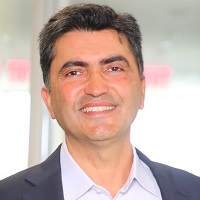 Leveraging Patient Education as a Transformative Business Strategy in Healthcare
Leveraging Patient Education as a Transformative Business Strategy in Healthcare
By Babak Azizzadeh, M.D., FACS, Director, Beverly Hills’ Center for Advanced Facial Plastic Surgery
LinkedIn: Babak Azizzadeh, MD, FACS
X: @bazizzadeh
In the realm of plastic surgery and broader healthcare, patient education stands as a beacon of progress. It’s not just about informing; it’s about empowering. By making patients a key part of their healthcare journey, we not only build trust but also solidify our practice’s standing in the community. Let’s dive into the significance of patient education and how it can dramatically reshape the future of private practices.
Why Educating Patients Matters
At the heart of any healthcare journey lies trust. Patients place immense trust in their surgeons and medical staff. By proactively educating them, we’re embracing transparency. This openness makes patients feel valued, involved, and in control, which cements their trust in our expertise and judgment.
Moreover, educated patients lead to positive outcomes and increased satisfaction. This is because informed patients are more likely to follow post-surgery guidelines and understand the importance of aftercare. This commitment typically leads to better results and fewer complications. And when patients are satisfied with their outcomes, they become vocal advocates for our services.
Another benefit is that keeping clients in the know helps to curb anxiety and perhaps avoid performing surgery on someone who is not ready. The unknown can be scary, especially in healthcare. By educating patients about procedures, risks, benefits, and what to expect, we reduce their anxieties. This leads to a more relaxed and positive experience throughout their journey.
Strategies for Effective Patient Education
Humans are visual creatures. Offering visual aids like brochures, illustrated guides, or even digital presentations can make complex topics easier to grasp. For instance, a diagram of a procedure can be far more enlightening than a verbose description.
From time to time, you could also host regular educational sessions (webinars, YouTube, Instagram & Facebook live, etc.) about various procedures, new advancements in the field, or general skin care. These platforms allow patients to ask questions in real time and foster a community feeling. We routinely post educational videos about advanced topics such as deep plane facelifts and cutting edge facial reanimation on our social channels so patients come in much better informed.
While these are broad methods of educating patients, remember that every patient is unique, and their education should reflect that. Personal consultations provide an opportunity to address specific concerns, discuss individual risks, and set clear, personalized expectations.
Empowered Patients are Key to a Thriving Practice
Educated patients feel a deeper connection to their healthcare provider. This relationship often translates to brand loyalty. They are more likely to return for additional services or procedures because they trust the source of their knowledge.
Nurturing patient relationships is also beneficial to referral efforts. Happy, empowered patients often share their experiences with friends and family. In the age of digital communication, a positive review or a heartfelt testimonial can significantly increase a practice’s visibility and reputation.
Patient education is more than a mere value-add; it’s a transformative tool. It creates a win-win situation: patients are empowered, making informed decisions, and the practice thrives, buoyed by trust, efficiency, and a sterling reputation. As we move forward in the ever-evolving landscape of healthcare, embracing and prioritizing patient education will be the hallmark of the most successful and respected practices.
